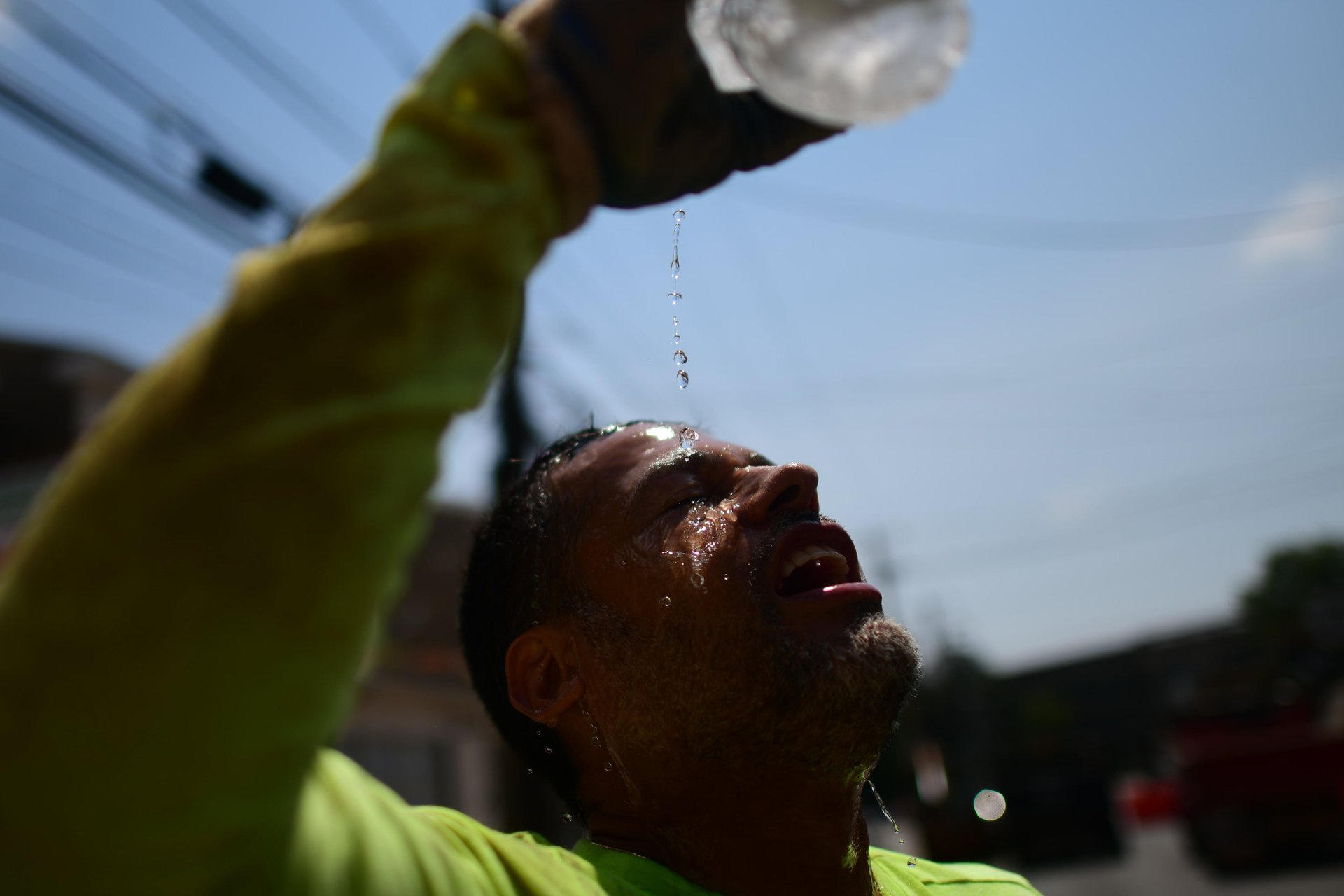🌎 How hot can it get?
Plus: What we know about the Langya virus.

Good morning, Quartz readers!
Here’s what you need to know
More than 100 million Americans could live in an “extreme heat belt” in 30 years’ time. A new model forecasts longer periods of temperatures reaching 125°F (50°C) in an area stretching from Texas and Louisiana as far north as Chicago.
US lawmakers were back in Taiwan. A five-member delegation visited the island just 12 days after Nancy Pelosi’s trip, prompting China to stage more military drills.
Wells Fargo planned a retreat from the mortgage business. According to Bloomberg, a string of scandals forced the bank to reconsider its once sprawling home loans empire.
What to watch for
Chinese president Xi Jinping is expected to visit Saudi Arabia this week for a meeting with crown prince Mohammed bin Salman (MBS) in his first official visit to a foreign country since 2020. Energy, the centerpiece of Saudi Arabian diplomacy, is likely to top the agenda.
Earlier this month, the Saudi state-owned oil company Aramco signed an agreement with China’s Sinopec to work together on oil, carbon capture, and hydrogen energy, building on their growing track record of geopolitical and trade cooperation. Saudi Arabia also stated this year it will consider accepting RMB instead of USD in oil sales to China as the country hedges against declining demand from the West and a chilling in ties with the US.
Xi’s expected arrival comes just one month after US president Joe Biden received a lukewarm reception from MBS in Jeddah, a meeting which resulted in a small increase in oil output—what many observers have called a snub.
What we know about the Langya virus so far
A new virus has been identified in China, in the Shandong and Henan provinces. It’s a zoonotic virus called Langya that likely jumped to humans from shrews.
Scientists expect more frequent discoveries of zoonotic viruses as deforestation and climate change reduce wild animals’ natural habitats, increasing the risk of contact and disease transmission to humans. What we know about the virus so far, however, raises no cause for alarm.
🐀 Langya is one of six known henipaviruses, which are carried by small mammals such as bats, rats, or—in this case—shrews.
🦠 The first recorded case of the virus dates back to 2018.
🚜 All 35 people reporting infections so far are farmers.
👥 There are no reported cases of human transmission so far.
🤒 Symptoms include fever, cough, fatigue, headache, and vomiting. A few cases involved signs of kidney and liver damage, but there are no recorded deaths.
After surviving covid, restaurants are facing the heat
Covid forced many restaurants to shut down. But those that pulled through are facing a new challenge: extreme heat.
Whether it’s a pizzeria in the Pacific Northwest or a pub in the UK, eateries are finding themselves ill-equipped to handle high temperatures, forcing some to close down for the safety of patrons and workers. Solutions are expensive, like investing in air conditioning, or bad for business, like shortening hours or switching menu items—all unwelcome developments after years of pandemic-related struggles, as Quartz reporter Michelle Cheng explains.
✦ Love keeping up with what’s happening in the global economy? Our journalism is free and accessible to all thanks to our member support. Sign up for a membership today and take 40% off when you do!
Surprising discoveries
The ocean doesn’t like lightning. Scientists think the reason bolts don’t strike much over the waves is because they’re particularly salty.
A big earthquake might not be the worst thing to hit California. Think instead of a megaflood, which scientists predict is much more likely thanks to climate change.
New research is helping neutralize some genetic cancers. Scientists hope a range of drugs known as “Parp inhibitors” could one day stop cancers from even occurring.
There’s a new deep-sea isopod on the block. Found in the Gulf of Mexico, the bathynomus yucatanensis is like a facehugger from the movie Alien, and just as ugly.
Is there a way to make electric vehicles without rare earth metals? A 17-year-old has created a motor that might just make EV manufacturing more sustainable.
Our best wishes for a productive day. Send any news, comments, salty lightning, and isopod friends to [email protected]. Reader support makes Quartz available to all—become a member. Today’s Daily Brief was brought to you by Sofia Lotto Persio, Julia Malleck, Annalisa Merelli, and Morgan Haefner.